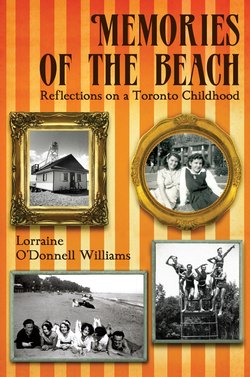Читать книгу Memories of the Beach - Lorraine O'Donnell Williams - Страница 7
На сайте Литреса книга снята с продажи.
ОглавлениеPreface
Like most writers, I keep stacks of clippings from newspapers, magazines, and other media stashed haphazardly in nominal files. However, an old clip I came across recently left me with a question: “Modern life fills children with anxiety, study finds” (National Post, December 15, 2000). It went on to describe a massive study of five decades, which concluded, “The slow disintegration of the ties that bind society together is creating generations of chronic worriers.”
It was then that I realized that the memoirs I was writing — about growing up in the 1930s and 1940s — were filled with some incidents of anxieties, but the overall tone was one of security interspersed with challenge. And certainly, the anxiety never led to me developing into a chronic worrier. Quite the opposite. I tend to be more in the “things always turn out for the best” school. Then I began to muse: was it possible that my childhood days marked the last, or near last, “age of innocence”?
Unwilling to be accused of being a Pollyanna, a non-realist, an idealist, I took a critical eye to the events of my upbringing. I knew that the decade in which I was born had not been free of stress and pain. It was the decade when Charles and Anne Lindbergh’s twenty-month-old son was kidnapped and later found murdered; when millions of North Americans were out of work due to the Great Depression; when Joseph Stalin’s wife was suspected of committing suicide; when the Second World War broke out. But good things were happening, as well. New York’s Radio City Music Hall opened. The Toronto Maple Leafs won the Stanley Cup. If you had any money, the price of a house averaged six thousand dollars and a loaf of bread cost a mere seven cents. A new car cost $610 and gas was ten cents a gallon. Elizabeth Taylor was born!
Reviewing my growing-up years over those two decades and comparing them to the society in which my children and their children will have to live, I have an increased understanding of how difficult it is for today’s generation to discern how to make positive choices. The growing prosperity after the war years, plus societal changes wrought by the war, were a prelude to the revolutionary social mores of the 1960s. Individualism and relativism are now dominant. Guidelines are often fuzzy or non-existent. By learning about times that were different, this generation may be encouraged to know that life was and can be different. That it’s possible to restore some of that innocence into their world.
I realize my life had an extra dimension that coloured it forever. Growing up at the Beach (or the Beaches, as many Torontonians refer to it) infused my nature with a resiliency as multi-faceted as the moods of Lake Ontario, and a foundation as firm as the grand old willow trees that line the boardwalk. I was truly blessed, as was every child who was a son or daughter of the Beach.
Bring back “the old days”? No, that’s not possible or even desirable. But honour those old days? Yes — and realize there are ways to integrate their values into today’s anxious world.
